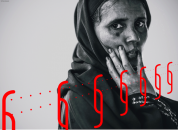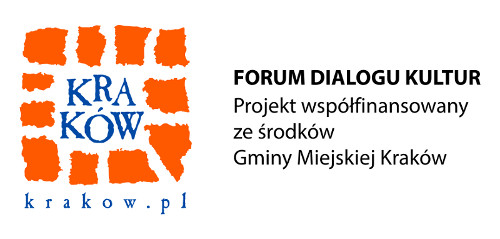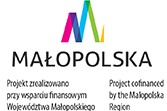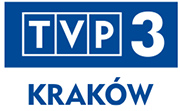
We are born in to a culture. The cultural context of our birth includes knowledge, belief, art, morals, law, customs, and any other capabilities and habits acquired by man as a member of society (Tylor, 1884: p. 145) and determines the way we perceive ourselves and justify all our actions towards others.
This cultural context, however, is not set in stone; on the contrary it is a dynamically changing field of references subject to numerous interventions. But as Unni Wikan observes, this context – culture does not does not act by itself, has no agenda, no political power (Wikan, 2001: p. 87). Humans do. And it is humans who can instrumentally use culture as a tool of social engineering to accomplish politically desirable purposes.
And thus, over centuries culture has been used to legitimize not only conflicts, wars, colonialism and holocaust but also political systems including apartheid. Exaggerating differences and ignoring similarities has been shaping attitudes to ourselves and to “the Other” (ibidem).
In liberal democracies the law is supposed to regulate the rights of any human being, any member of society, their citizenship and safeguard justice by protecting a human being in any political regime and cultural context.
Nowadays, however, the law is turning into a hostage of culture, and manipulating cultural identity and values to obtain politically desirable goals, has become quite a popular game. Contemporary political narratives, rooted in -not necessarily glorious- past, exaggerate historical merits and internal and external dangers, and will result in fear and intellectual deficiency. Seeking refuge in a “safe” historical past and in construction of a “safe”, claustrophobic vision of the world, will in consequence target against the rights of the “Other” people, including immigrants and refugees.
Unni Wikan says that contemporary identity politics rests on a structure of fear and the culture has become a new concept of race, sustaining ethnic identity politics that subvert human rights (ibidem, p. 148). Trying to escape from mostly exaggerated external dangers, we turn to “our” culture and to minimize the impending fear we sacrifice fundamental freedoms, citizenship, social justice and ignore international laws and treaties. Identity politics make mockery of what we so proudly took for granted: human rights, and seal the future of any community by leading to conflicts, distrust and disrespect for human dignity.
The conference Law against Culture will offer a space for reflection, rapprochement and provision of knowledge for the general public and professionals from the sector. Its programme, based on intellectual contributions from internationally recognised public figures and outstanding experts, combines lectures, debates and discussion sessions open to representatives of academic, political and cultural circles, NGOs, public administration, and the media.
The conference is a part of the series of international seminars dedicated to the idea of freedom organised by the Villa Decius Association since 2002 and a platform of awarding with The Polish Prize of Sergio Vieira de Mello, UN High Commissioner of Human Rights both persons and nongovernmental organisations from all over the world for their efforts in fostering peaceful cohabitation of communities, religions and cultures.
It is organised in collaboration with the UNHCR Representation in Poland, with support of ICORN, the International Cities of Refuge Network, the Polish Ministry of Foreign Affairs, City of Krakow, Region of Małopolska and Krakow academic community.
LAW AGAINST CULTURE
PROGRAMME
Thursday, 20 October
- 9:00 – 9:30 Registration
- 9:30 – 10:00 Welcome addresses and opening, Danuta Glondys, Bogusław Sonik
- 10:00 – 10:30 Key note speech: Generous Betrayal, Unni Wikan
- 10:30 – 12:00 Debate 1
Politics of fear. Politics of culture
Unwanted facts on human rights, immigration and refugees. Price of belonging.
Experts: Adam Bodnar, Felix Kaputu, Paweł Kowal
Moderator: Krzysztof Bobiński
- 12:00 – 12:30 Coffee break
- 12:30 – 13:00 Special Lecture by Montserrat Feixas Vihe, UNHCR Regional Representative
- 13:00 – 14:30 Debate 2
Tolerance versus Humanism
Welfare states in the times of refugee crisis. How to help people caught in turmoil.
Experts: Tahira Abdullah, Halina Grzymała-Moszczyńska, Helge Lunde
Moderator: Dominika Kasprowicz
- 14:30 – 14:45 UNHCR exhibition on Rohingya Refugees with photos by Marcin Zaborowski, introduction by Magda Pajura, HNLAC
- 15:00 – 16:00 Buffet meal
- 16:00 – 18:00 SPECIAL EVENT
13th Awards Gala of the Polish Prize of Sérgio Vieira de Mello, The United Nations High Commissioner for Human Rights (2002-2003)
With participation of the Panel of Judges of the Polish Prize of Sérgio Vieira de Mello: The Chancellery of the President of Poland, HE Ambassador of the Federative Republic of Brazil to Poland, HE Ambassador of the Kingdom of Sweden to Poland, UNHCR Representation in Poland, The Department of the United Nations and Human Rights of the Polish Ministry of Foreign Affairs, The Polish Commissioner for Human Rights, The Institute of National Remembrance in Poland, The United States Consul General in Krakow, The Polish-Ukrainian Cooperation Foundation PAUCI, The ZNAK Foundation, President of ZUE S.A., President of Kraków Airport, and the Villa Decius Association (for more details see separate programme).
Simultaneous interpretation (English/Polish): Aleksander Jakimowicz and Piotr Krasnowolski
EXPERTS‘ BIOS
- Tahira Abdullah
Independent economic development practitioner, researcher, author, peace activist, human rights defender, humanitarian volunteer, based in Islamabad, Pakistan. She read Economics, Political Science and Sociology, did MA in Comparative Religion & Sociology in UK and obtained postgraduate diplomas/certificates in Development Economics, International Development, Gender, Reproductive Health Rights, Population, Labour Rights. Over the past 35 years she has been involved in activism, research, writing, advocacy, humanitarian and economic development work (especially in the rural areas and urban informal settlements/slums). Worked with UN agencies: UNICEF and UNFPA (as employee), and with UN/RC, UNW/UNIFEM, ILO, FAO, IFAD (as independent consultant). Lecturer at various secondary and tertiary educational institutions, incl. Punjab University. Author of numerous articles and public advocacy statements.
- Krzysztof Bobiński
President of The Unia & Polska Foundation and currently the co-chair of the Civil Society Forum of the Eastern Partnership. He writes occasionally for ‘openDemocracy’ and is an associate editor of the Europe section of the ‘Europe’s World’. Bobiński read Modern History at Oxford and did an MA in regional studies at London University. He was the Warsaw correspondent of the ‘Financial Times’ from 1976 to 2000 and contributed to other publications such as ‘The Observer’ and ‘Washington Post’ as well as the BBC. He was the co-founder and publisher of the Polish ‘Unia & Polska’ magazine.
- Adam Bodnar
Graduated from the faculty of Law and Administration at University of Warsaw and from LL.M. programme in the field of comparative constitutional law at Central European University in Budapest. In 2006 he was awarded PhD degree at University of Warsaw in the field of constitutional law. In 2004-15 worked for Helsinki Foundation of Human Rights, firstly as a co-founder and coordinator of Precedent Cases Programme and then as a head of legal department and vice-president of the Management Board. He is also an expert in the Agency of Fundamental Rights of European Union, and in 2013-2014 was a member of the board of directors of the United Nations Fund for Victims of Torture. Since 2006 he has been giving lectures at the law and administration department of University of Warsaw. In 2011 he was awarded with the Tolerance Prize by the Polish LGBT organizations. With a support of 67 non-governmental organizations in 2015 he was notified for the post of Ombudsman. His candidature was approved by Sejm and Senate and on 9 September 2015 the Sejm took his oath.
- Montserrat Feixas Vihé
UNHCR’s Regional Representative for Central Europe. She is responsible for the overall formulation, coordination and management of UNHCR’s operations in Bulgaria, Croatia, the Czech Republic, Hungary, Moldova, Poland, Romania, Slovakia and Slovenia, and she leads the policy dialogue and advocacy on refugee issues and statelessness with these Governments.
She joined UNHCR in 1984 as an Education Officer in Gedaref, Sudan, and since then she has held different posts in UNHCR’s missions in Honduras, Pakistan, Uganda and India, as well as at UNHCR’s Headquarters in Geneva where she has been responsible for operations in the Middle East and in Central America and the Caribbean. She was Chief of Mission at UNHCR’s Office in New Delhi for five years. In 1993-1994 Ms. Feixas Vihé was based with the World Bank in Washington DC where she worked on health, education and nutrition programmes for Central America, and in 2002 she was seconded to UNDP in Islamabad to develop a special programme for the development of refugee hosting areas in North West Pakistan.
She holds a Bachelor Degree in Political Science from Geneva University, a Master’s Degree in Public and International Affairs from Princeton University and a PhD in Geography from the Autonomous University of Barcelona. She speaks Catalan, Spanish, English, French and Italian.
- Danuta Glondys
PhD degree in the Humanities, MA in English Philology and in Political Science. Between 1993-99 director of Culture Department of the Municipality of Kraków and then regional director of the USAID programme in Poland. Director of Villa Decius Association between 2001-2016. For 6 years she was a European Commission expert, selecting and monitoring all European Capitals of Culture in the period 2009-2017. Her research field covers relations between culture and politics. Member of the board of International Cities of Refuge Network (Norway), and Programme Council of Genshagen Foundation (Germany). Lecturer at the Jagiellonian University and at the Faculty of Humanities of AGH University of Science and Technology. Awarded with i.a. the Polish Foreign Ministry’s Bene Merito medal and the Knight’s Cross of Polonia Restituta by the President of Poland.
- Halina Grzymała-Moszczyńska
Professor of psychology at the Jagiellonian University. She teaches courses in Cultural Psychology, Applied Cross-cultural Communication, Psychology of Religion, Clinical Aspects of Religiosity, Multiculturalism and Religion. Her research focuses on religious experience in various religious contexts, the role of religion in the process of cultural adaptation of immigrants and the response of local communities to refugee reception centers and immigrants. She is a member of many national and international professional organizations and serves on the editorial boards of several professional journals. She has published ten volumes as well as 45 articles and chapters that have appeared in national and international journals and books. She has taught courses at Vienna University, Uppsala University, LA University in Santa Barbara, Rochester University and in Asia at Mahidol University in Bangkok.
- Felix Kaputu
PhD in Comparative Literature from the Université de Lubumbashi in the Democratic Republic of the Congo and recipient of numerous scholarships incl. US Fulbright Scholarship in Religion and Pluralism at the University of California Santa Barbara and a Japanese Government Scholarship at the Nanzan University. He worked for different academic institutions in the United States of America, Japan and in Belgium contributing to African Studies, African Politics, Literature (Mythology), Gender, Religion, Diaspora, Art, Community Development and Pedagogy. His main axes of expertise have grown within comparative structures that put African experiences and studies, on the one hand, and respectively other continents especially Asian, European and American, on the other, for global comparative presentations and understanding of socio-political, religious, literary and artistic productions.
- Dominika Kasprowicz
PhD in Social Sciences, associate professor at the Institute of Journalism, Media and Social Communication of the Jagiellonian University, Poland. Analyst and commentator on the politics of CEE, author of numerous articles. Her research area includes populist radical right movements, party politics in the CEE region, electoral behaviour and social innovations in politics. Recently co-authored volumes: Politics, Society and the Economy in Contemporary Poland. An Introduction, Warsaw 2016 and SPACE – socio-political Alternatives in Central Europe, Warsaw 2014. Coordinator of SPACE and Barometr Wyborczy projects. Since October 2016 director of the Villa Decius Association in Kraków.
- Paweł Kowal
Assistant professor in the Institute of Political Studies at the Polish Academy of Sciences, lecturer at Warsaw University, research fellow at the College of Europe (Natolin Campus). Political scientist, historian, columnist and expert on the EU’s eastern policy. In 2009–14 he was a Member of the European Parliament and served i.a. as Chair of the EU delegation to the EU-Ukraine. Former member of the Sejm and the National Security Council. In 2006-7 he served as a Secretary of State in the Ministry of Foreign Affairs. Author of numerous publications on political transformations in Central Europe and member of the board of “New Eastern Europe” and Platform of European Memory and Conscience. Co-founder of the Museum of the Warsaw Uprising in Warsaw.
- Helge Lunde
Former director of the Kapittel Stavanger International Festival of Literature and Freedom of Speech (Norway) and the managing director of Stavanger’s city of refuge for persecuted writers programme (1998–2005). He was the founding director of ICORN, the International Cities of Refuge Network (2005) and has been its Executive Director since then. The International Cities of Refuge Network is an association of at present approximately 60 cities around the world dedicated to the values of freedom of expression, creativity, solidarity and hospitality. Writers and artists are increasingly becoming targets of politically motivated threats and persecution, and the network believes it is necessary for the international community to formulate and implement an appropriate response.
- Bogusław Sonik
President of the Board of the Villa Decius Association, former member of European Parliament (European Democrats group), chairman of Stowarzyszenie Maj ’77, director of the Polish Institute in Paris and minister plenipotentiary at the Embassy of Poland in France (1990–96). Director of the Kraków 2000 – European City of Culture (1996–2002). Awarded with the Chevalier de l’Ordre des Arts et des Lettres (1993) and Order of Merit for achievements in the field of Polish Culture (1999). As a member of European Parliament he was involved in Foreign Affairs Committee, Subcommittee on Human Rights, Committee on Environment, Public Health and Food Safety, and was in charge of negotiations on REACH directive. His significant success was a report concerning influence of extraction of shale gas on the environment which gave the “green light” to the extraction of shale gas in Europe.
- Unni Wikan
Professor of social anthropology at Oslo University. She has done fieldwork in Egypt, Oman, Yemen, Bali, Bhutan and Scandinavia, and has published nine books, among others Life Among the Poor in Cairo, Behind the Veil in Arabia: Women in Oman, Good Willing: Self-Made Destinies in Cairo, and Generous Betrayal: Politics of Culture in the New Europe. She has published extensively in international peer-reviewed journals. She has been a consultant to UNICEF and the World Food Programme, the Norwegian Development Organization and the UNDP. She has conducted research on poverty, gender, development, emotion, social justice, welfare, multiculturalism, and law.
She has served as visiting professor and guest lecturer at the University of Chicago, Harvard University, Goethe University (Frankfurt), London School of Economics, École des Hautes Études en Sciences Sociales (Paris), Ben-Gurion University of the Negev (Israel) and at Johns Hopkins University.
In 2004, she was awarded with „Small Nobel“ which is the Freedom of Expression Award.
organizator/organiser
współorganizator/co-organiser
partnerzy/partners
fundator/founder
sponsorzy/sponsors
patronat medialny/media patrons














